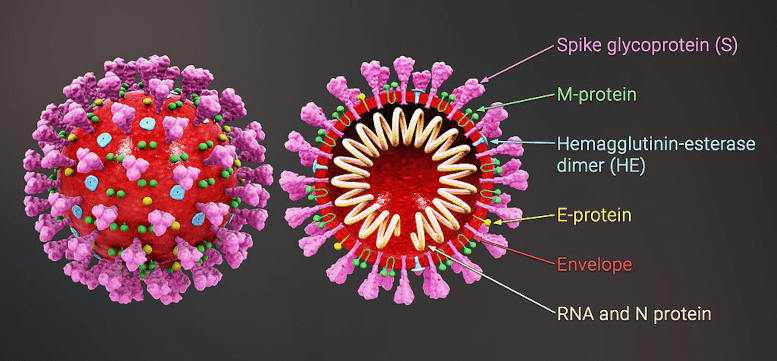Two hemp compounds show promise in fighting covid-19 virus

POSTED BY: HEMPTODAY® JANUARY 13, 2022
Two compounds present in industrial hemp show the ability to prevent the virus that causes covid-19 from entering human cells, according to researchers in Oregon.
“These cannabinoid acids are abundant in hemp and in many hemp extracts,” said Richard van Breemen, a researcher with Oregon State University’s Global Hemp Innovation Center, College of Pharmacy and Linus Pauling Institute, who led the study. “They are not controlled substances like THC, the psychoactive ingredient in marijuana, and have a good safety profile in humans.”
Prevent and treat
The research found that CBGA (cannabigerolic acid) and CBDA (cannabidiolic acid) bind to covid-19 spike proteins, blocking a critical step in the process the virus uses to infect people.
The compounds, which can be taken orally, “have the potential to prevent as well as treat infection by SARS-CoV-2 (covid-19),” van Breemen said.
Van Breemen led a team of scientists from Oregon Health & Science University (OHSU) in carrying out the study.
Not in CBD or CBG
CBDA and CBGA are produced by the hemp plant as precursors to CBD (cannabidiol) and CBG (cannabigerol), common consumer products. But the acids are different from CBD and CBG, and are not contained in those common hemp-derived products, Van Breemen noted.
Van Breeman said compounds that block virus-receptor interaction have been helpful for patients with other viral infections, including HIV-1 and hepatitis.
Van Breemen, Ruth Muchiri of the College of Pharmacy and Linus Pauling Institute, and five scientists from OHSU identified the two cannabinoid acids via a mass spectrometry-based screening technique invented in van Breemen’s laboratory. Van Breemen’s team screened a range of botanicals used as dietary supplements including red clover, wild yam, hops and three species of licorice.
Challenging the virus
He said resistant covid-19 variants could still arise despite widespread use of cannabinoids but that the combination of vaccination and CBDA/CBGA treatment should result in a much more challenging environment for the virus.
Researchers Timothy Bates, Jules Weinstein, Hans Leier, Scotland Farley and Fikadu Tafesse of OHSU also contributed to the cannabinoid study.
See the study: Cannabinoids Block Cellular Entry of SARS-CoV-2 and the Emerging Variants

